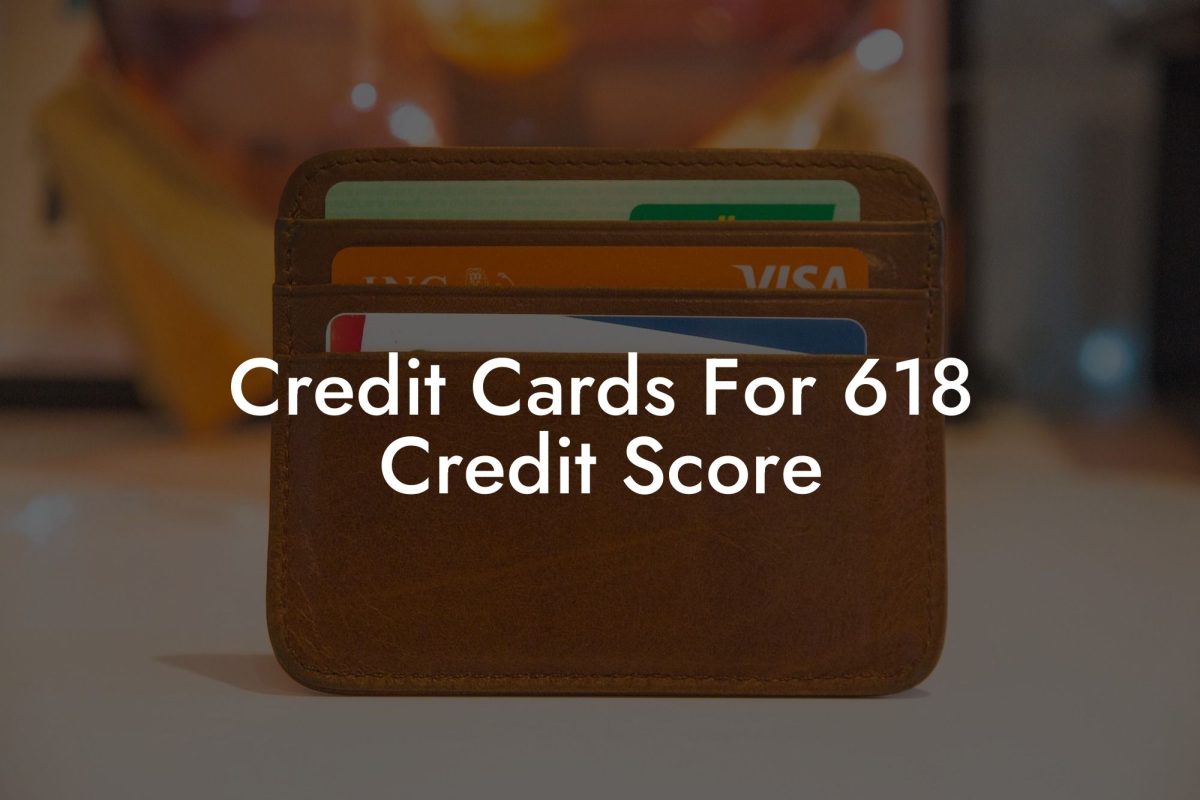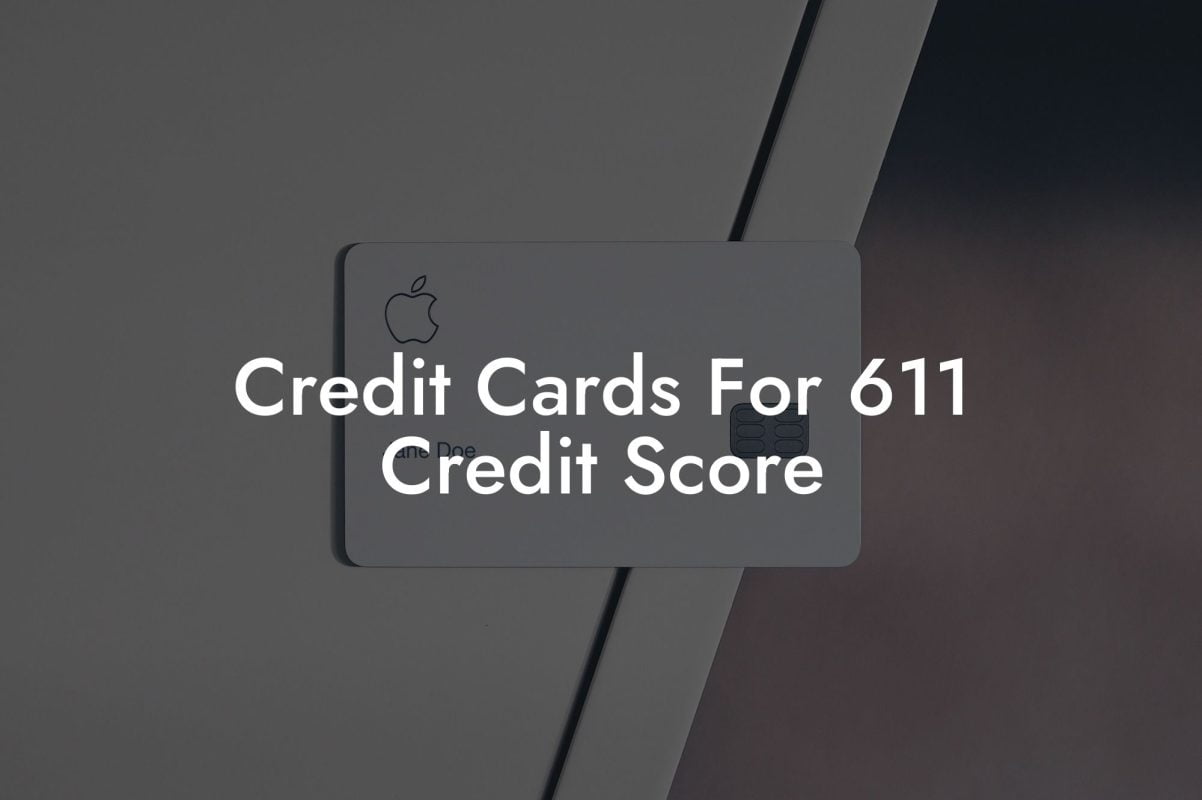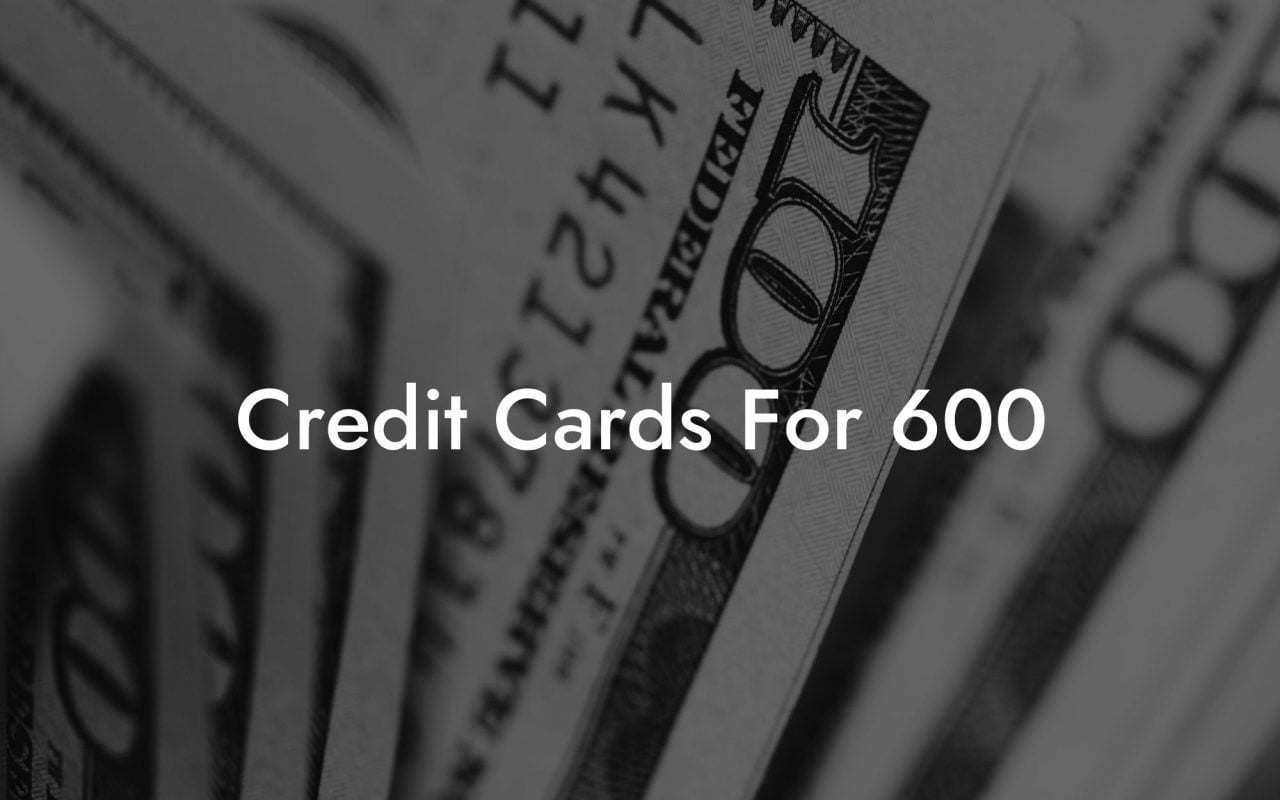When it comes to choosing a new credit card, there are a lot of things to consider. Do you want a card that has a low interest rate? Or maybe one with no annual fees? How about bonus points or cash back? It can be tough to decide what's the best fit for your needs. That's why we've put together this comprehensive guide to what to look for in a credit card! We'll go over all the different features and benefits, so you can find the perfect card for your situation.
Quick Links to Useful Sections
- What to Look for in a Credit Card Table of Contents
- Rewards Credit Cards
- Cash Back Credit Cards
- Balance Transfer Credit Cards
- Low Interest Credit Cards
- Secured Credit Cards
- The Amount of Cash Back You Earn
- The Categories That Earn the Most Cash Back
- Annual Fee
- Sign-up Bonus
- A Low Interest Rate
- A Rewards Program
- No Annual Fee
- Flexible Payment Options
- Interest Rate
- Rewards
- Credit Limit
- Customer Service
What to Look for in a Credit Card Table of Contents
What to Look for in a Credit Card Table of Contents
What to Look for in a Credit Card?
What Are The Different Types of Credit Cards?
Secured Credit Cards Vs. Unsecured Credit Cards?
How to Choose The Best Type of Credit Card?
How Do I Get a Credit Card With Low Interest Rates?
What is a Good Interest Rate on a Credit Card?
Are Cash Back Credit Card Worth It?
Are Rewards Credit Cards Worth It?
What to Look for in a Credit Card to Build Credit?
What to Look for in a Credit Card for College Students?
What Is the Most Important Factor When Choosing a Credit Card?
What to Look for in a Credit Card Table of Contents
What to Look for in a Credit Card?
What Are The Different Types of Credit Cards?
Secured Credit Cards Vs. Unsecured Credit Cards?
How to Choose The Best Type of Credit Card?
How Do I Get a Credit Card With Low Interest Rates?
What is a Good Interest Rate on a Credit Card?
Are Cash Back Credit Card Worth It?
Are Rewards Credit Cards Worth It?
What to Look for in a Credit Card to Build Credit?
What to Look for in a Credit Card for College Students?
What Is the Most Important Factor When Choosing a Credit Card?
How to Choose a Credit Card for the First Time
What to Look for in a Credit Card?
There are a few key things to look for when choosing a credit card. The first is what kind of interest rate you will be charged. Some cards have introductory rates that can save you money if you carry a balance, while others have higher rates that can end up costing you more in the long run. It's important to compare rates and make sure you're getting the best deal possible.
Another thing to consider is what kinds of rewards or points programs are offered by the credit card company. If you travel often, for example, you might want a card that offers points or miles that can be redeemed for free or discounted travel. Or, if you tend to carry a balance, you might want a card with cash back rewards so you can earn money back on your purchases. There are a variety of rewards programs out there, so it's important to find one that fits your spending habits and lifestyle.
Finally, you'll want to take a look at the fees associated with the card. Some cards have annual fees, while others have balance transfer fees or foreign transaction fees. Make sure you understand all the fees before you apply for a card so you're not surprised by any hidden costs down the road.
By keeping these things in mind, you can be sure to find the best credit card for your needs. With a little research, you can find a great deal on a new card that will save you money and help you earn rewards.
What Are The Different Types of Credit Cards?
There are many different types of credit cards available on the market today, and it can be difficult to know which one is right for you. Here are a few things to consider when choosing a credit card:
Rewards Credit Cards
With a rewards credit card, you earn points for every purchase that can be redeemed for cash back, merchandise, travel, or gift cards. If you travel often or make a lot of purchases, a rewards credit card could be a good option for you.
Cash Back Credit Cards
A cash back credit card gives you a percentage of your purchase back in the form of cash (usually deposited into your checking account). Cash back cards typically have no annual fee and offer higher percentages back on specific categories like gas or groceries.
Balance Transfer Credit Cards
A balance transfer credit card allows you to transfer the balance from another high-interest credit card onto the new card with a lower interest rate. This can help you save money on interest and pay off your debt faster. Most balance transfer cards have a promotional period of 0% interest for 12-18 months, after which the interest rate will increase.
Low Interest Credit Cards
A low interest credit card charges a lower annual percentage rate (APR) than a standard credit card. This can be helpful if you carry a balance from month to month or if you need to make a large purchase and pay it off over time. Keep in mind that most low interest credit cards require good to excellent credit for approval.
Secured Credit Cards
A secured credit card is backed by a deposit that you make when you open the account. The deposit acts as collateral in case you default on your payments, so these cards are easier to get approved for than unsecured cards. Secured cards can help you build or rebuild your credit, but they typically have annual fees and higher interest rates.
Now that you know what to look for in a credit card, it's time to start shopping around! Compare different offers and find the card that best fits your needs.
Secured Credit Cards Vs. Unsecured Credit Cards?
When you are looking for a new credit card, one of the things you will want to consider is whether you want a secured or unsecured credit card.
A secured credit card is one where you have to put down a deposit in order to get the credit limit.
This deposit acts as collateral in case you default on your payments. An unsecured credit card does not require a deposit, but usually has a lower credit limit and may have a higher interest rate.
So, which type of card is right for you? It really depends on your financial situation and what your goals are for using the credit card. If you need to build or rebuild your credit, then a secured credit card may be the best option for you. But if you have good credit and are looking for a card with rewards or perks, then an unsecured credit card may be the better choice.
How to Choose The Best Type of Credit Card?
When it comes to credit cards, there are many different types available on the market. So, what type of credit card is best for you? Here are a few things to consider when choosing a credit card:
- The interest rate and fees: Make sure to compare the interest rates and fees of different credit cards before deciding which one to apply for.
- The rewards program: If you are a frequent traveller or shopper, then look for a credit card that offers rewards such as air miles or cash back.
- Your credit history: If you have good credit, you will likely be able to qualify for a better interest rate and terms than someone with bad credit.
- Your spending habits: Consider how you will use the credit card and what type of spender you are before choosing a card. For example, if you plan on using the credit card for everyday purchases, then look for a card with no annual fee and a low interest rate.
By taking these factors into consideration, you will be able to choose the best type of credit card for your needs. So, what are you waiting for? Start comparing credit cards today!
How Do I Get a Credit Card With Low Interest Rates?
The average credit card interest rate is around 16%, but some cards have rates as high as 30%! So what can you do to get a credit card with low interest rates?
Here are a few things to keep in mind:
- First, remember that your credit score is one of the biggest factors that determines your interest rate. If you have a good credit score, you’re more likely to be approved for a card with low interest rates.
- Second, compare different offers and look for cards that have introductory 0% APR periods. This can help you save money on interest in the short term.
- Third, consider balance transfer offers from other creditors. This can help you consolidate your debt onto one low-interest card.
If you keep these things in mind, you’ll be on your way to finding a credit card with low interest rates that fits your needs!
What is a Good Interest Rate on a Credit Card?
The interest rate on your credit card is important because it will determine how much you end up paying in finance charges. A high interest rate means that you'll pay more in finance charges, which can add up quickly. A low interest rate means that you'll pay less in finance charges.
When choosing a new credit card, it's important to compare interest rates. Some cards have introductory rates that last for six months or a year. These introductory rates can be very low, but they usually go up after the introductory period ends. Make sure you know what the interest rate will be after the introductory period ends before you apply for the card.
Another thing to consider is whether the card has a variable or fixed interest rate. A fixed interest rate means that the interest rate will never change. A variable interest rate means that the interest rate can go up or down depending on market conditions. Variable interest rates are usually lower than fixed rates, but they can increase quickly if market conditions change.
When you're comparing credit cards, pay attention to the fees that each card charges. Some cards have annual fees, balance transfer fees, and cash advance fees. These fees can add up quickly, so make sure you know what you're being charged before you apply for a card.
Are Cash Back Credit Card Worth It?
There are a lot of different cash back credit card offers on the market, and it can be hard to know which one is right for you. Here are a few things to look for when choosing a cash back credit card:
The Amount of Cash Back You Earn
Some cards offer a flat rate of cash back, while others offer tiered rewards. Make sure you know how much cash back you'll earn on each purchase.
The Categories That Earn the Most Cash Back
Most cards offer bonus rewards in specific categories, like gas or groceries. If there's a category that you spend a lot of money in, make sure your card offers good rewards in that area.
Annual Fee
Some cards have an annual fee, while others do not. If a card has an annual fee, make sure that the cash back rewards will offset the cost of the fee.
Sign-up Bonus
Many cards offer a sign-up bonus, like cash back or points, when you open a new account. Be sure to read the fine print to see what you need to do to earn the bonus.
By keeping these things in mind, you can be sure to find the best cash back credit card for your needs.
Are Rewards Credit Cards Worth It?
This is a question that you should ask yourself before signing up for any rewards credit card. There are a few things to consider when trying to determine if a rewards credit card is right for you. The first thing you need to ask yourself is how often you will use the card. If you are only going to use it for occasional purchases, then a rewards credit card may not be worth the annual fee. However, if you plan on using the card regularly, then the rewards points can quickly add up and offset the cost of the annual fee.
Another thing to consider is what type of rewards points you will earn. Some cards offer cash back while others offer points that can be redeemed for travel or merchandise. Make sure that the type of rewards offered fit your spending habits and lifestyle. There is no sense in signing up for a travel rewards card if you never take vacations. Likewise, there is no point in getting a cash back card if you always pay off your balance in full every month.
The last thing to consider is the interest rate. Rewards credit cards tend to have higher interest rates than regular credit cards. This means that if you carry a balance on your card from month to month, the interest charges will offset any rewards points you may have earned. For this reason, it is important to make sure that you are able to pay off your balance in full each month before signing up for a rewards credit card.
If after considering all of these factors, you still feel that a rewards credit card is right for you, then the next step is to compare different cards and find the one that offers the best rewards program for your needs. There are many great rewards credit cards on the market, so do your research and choose wisely.
What to Look for in a Credit Card to Build Credit?
When you're looking for a credit card to build credit, you'll want to find one that reports to the major credit bureaus. You'll also want to look for a card with no annual fee and a low interest rate. A rewards program may be another important factor for you, especially if you travel often. Whatever your priorities are, make sure to do your research before choosing a credit card. The last thing you want is to end up with a card that doesn't fit your needs.
What to Look for in a Credit Card for College Students?
If you're a college student, chances are you're looking for a credit card that will help you build your credit. But with so many options out there, it can be overwhelming to choose the right one. Here's what to look for in a credit card for college students:
A Low Interest Rate
This is important because it means you'll save money on interest charges if you carry a balance from month to month. Look for a card with an APR of 14% or lower.
A Rewards Program
Many cards offer rewards programs that give you points or cash back on your purchases. This can be especially valuable if you use your card for everyday expenses like gas and groceries.
No Annual Fee
Many credit cards for college students have no annual fee, so be sure to look for this before you apply.
Flexible Payment Options
Some cards offer the ability to make payments in multiple ways, including online, by phone, and even through text messaging. This can be helpful if you're tight on cash one month but want to avoid paying interest charges.
By keeping these things in mind, you can narrow down your choices and find the best credit card for your needs as a college student.
What Is the Most Important Factor When Choosing a Credit Card?
There are a few key factors you should consider when choosing a credit card. The most important factor is what you will be using the credit card for. If you plan on using the credit card for everyday purchases, then you will want to find a credit card with low interest rates and no annual fee. However, if you plan on using the credit card for travel or other large purchases, then you will want to find a credit card with rewards points that can be redeemed for travel expenses.
Another factor to consider when choosing a credit card is what type of perks and rewards the credit card offers. Some cards offer cash back on all purchases, while others offer points that can be redeemed for travel expenses or merchandise. Find a credit card that offers perks and rewards that fit your spending habits and lifestyle.
Finally, make sure you read the fine print before signing up for a new credit card. Know what the interest rates are and what fees you will be responsible for paying. By understanding the terms of your credit card agreement, you can avoid any unwanted surprises down the road.
How to Choose a Credit Card for the First Time
Choosing a credit card can be overwhelming, especially if you're doing it for the first time. There are so many options out there, and it's hard to know what to look for. This guide will help you choose the right credit card for your needs by considering six important factors:
Annual Fee
Many cards come with an annual fee, which can range from $0 to over $500. If you're new to using credit cards, you may want to choose a card with no annual fee so that you don't have to worry about paying it. However, sometimes cards with annual fees offer better rewards or perks than those without annual fees, so it's important to weigh all of your options before making a decision.
Interest Rate
The interest rate is the fee you'll be charged for borrowing money from your credit card company. It's important to choose a card with a low interest rate so that you don't end up paying more in fees than you have to.
Rewards
Many cards offer rewards, such as cash back or points that can be redeemed for travel or other purchases. If you think you'll use the rewards, choose a card that offers the ones that are most valuable to you.
Sign-up Bonus
Some cards offer a sign-up bonus, which is usually a certain amount of points or cash back after you spend a certain amount of money within the first few months of opening your account. If you think you'll be able to meet the spending requirements, a sign-up bonus can be a great way to earn some extra rewards.
Credit Limit
Your credit limit is the maximum amount of money you're allowed to borrow from your credit card company. It's important to choose a card with a high credit limit so that you don't have to worry about maxing out your card and damaging your credit score.
Customer Service
If you have any problems with your card, it's important to be able to reach customer service easily. Look for a company that offers 24/7 customer service so that you can always get help when you need it.
By considering all of these factors, you'll be well on your way to choosing the best credit card for your needs.













